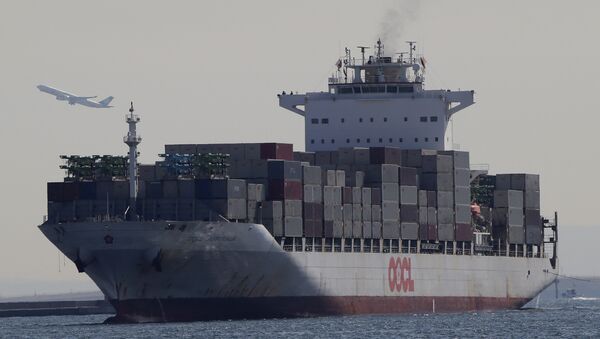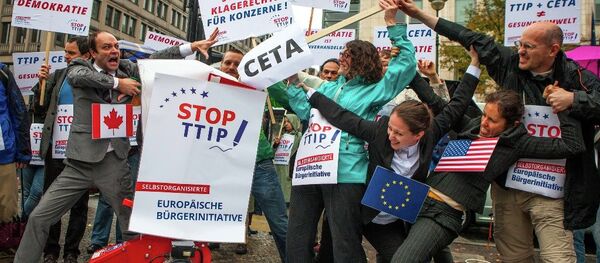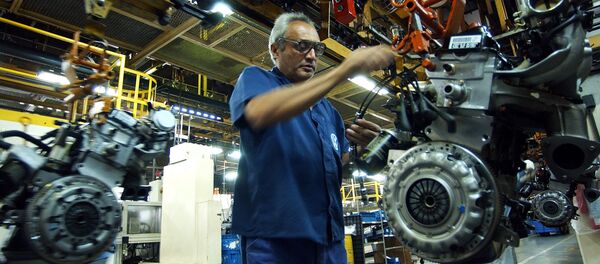The EU aims to conclude a free trade agreement with Japan this year, a European Commission source close to the negotiations told Euractiv on Monday.
Patrick Messerlin, Professor Emeritus of Economics at Sciences Po Paris and Chairman of European Centre for International Political Economy's Steering Committee, told Radio Sputnik that the details of such deals take a long time to hammer out, but he is optimistic that the two sides will be able to do so in time.
"History shows that it takes much more time than expected, often for very minute details. For example, Canada and the EU had struggled for three years before finally resolving issues like 50,000 tons of beef. A very minor issue, but it takes a long time," Messerlin said.
Last week, the European Parliament in Strasbourg approved the Comprehensive Economic and Trade Agreement (CETA) between Canada and the EU. Yet to be ratified by the Canadian Senate, CETA includes quotas that, for example, allow the EU to export 30,000 tons of cheese to Canada duty-free, and Canada to export 55,000 tons of beef to the EU without tariffs.
Messerlin said that a free trade deal with Japan should be a priority for the EU, as part of a "pivot to Asia" policy.
"We in Europe need to pivot to Asia. We already have an agreement with South Korea and we need another agreement and Japan is the main target because it's a very large country so that could have a positive impact on our economy … we could export more and Japan also offers huge access to the Southeast Asian market – Indonesia, Vietnam, they have a lot of contact with them so it would be good for us, indirectly, to access these new markets."
"There are definitely huge potential benefits" for industry and services in both the EU and Japan, Messerlin said.
For the EU, Japan presents a huge, well-regulated market for agricultural goods. Goods allowed on the Japanese market are well-regarded in other Asian countries.
Financial services and the transport sector, particularly railways, a traditional Japanese strength, would also benefit from a free trade deal.
However, Messerlin noted that any free trade deal results in some losers, and the respective governments will have to compensate those people.
"As usual, when you open trade and the economy, there are some losing sides. Some people are losing, so we have to compensate these people in some way, and this is a task of the government."
"The government is not inactive when you sign a trade agreement, it's not the demise of the government. On the contrary, the government should really cope with all these issues in an innovative way and that's not always easy of course," the economist said.
The Japanese parliament had ratified the TPP in December, but in January US President Donald Trump singed an executive order withdrawing the US from the trade deal, a flagship economic policy of the Obama administration.
Trump has stated that he wants to pursue a more protectionist economic policy and renegotiate the NAFTA free trade deal with Canada and Mexico. However, the EU still maintains hope that the US will ratify the TIIP.
The US President has publicly attacked the TPP and NAFTA, "but he hasn't said anything about TTIP," EU Commission Vice-President Jyrki Katainen told Reuters earlier this month.
"Let me say: there is still hope for the TTIP," he added.
Have you heard the news? Sign up to our Telegram channel and we'll keep you up to speed!




